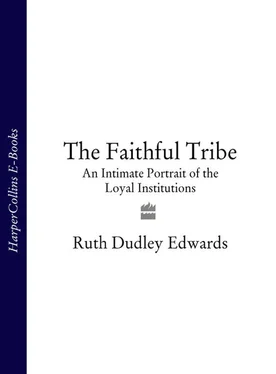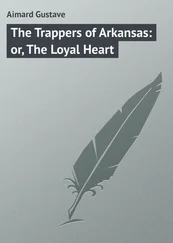And thus I on did march;
Through desert lands I travelled o’er,
And the narrow road I trod,
Till something did obstruct my path
In the form of a toad.
So then I saw what did me awe,
Though wandering in a dream
A flaming bush, though unconsumed,
Before me did remain;
And as I stood out of the wood
I heard a heavenly sound,
Which made me cast my shoes away,
For it was holy ground.
Two men I saw, with weapons keen,
Which did me sore annoy –
Unto a pyramid I ran
That standing was hard by;
And as I climbed the narrow way,
A hand I there did see,
Which layed the lofty mountains
In the scale of equity.
Blue, gold, and black about my neck,
This apparition placed –
Into a chariot I was put,
Where we drove off in haste:
Twelve dazzling lights of beauty bright
Were brought to guide my way,
And as we drove thro’ cypress shades
One of them did decay.
Near to a mount I saw a fount
Of living water flow;
I being dry, they did reply,
To drink you there may go;
The mystic cup I then took up,
And drank a health to all
That were born free and kept their knee
From bowing unto Baal.
‘I think we have to deal with the image of secrecy,’ says William Bingham. ‘Too many people see the Black as being almost masonic, which it isn’t. As a group of people who have hidden agendas and secret meetings and people fishing for jobs for the boys. So I think the institution has to become more open. It has to be prepared to come forward and say, you know, this is what our degrees are about without going into great detail. We should explain to people the meanings of the degrees.
‘We’ve tried to do this in Markethill District where about four years ago we started public meetings once a month during the months of November through to March where the scriptures related to each of the degrees were read and explained. And when we’d gone through the degrees we brought in the banners – one banner a night from each preceptory – and looked at the picture – usually a picture relating to one of the degrees – and explained to people the significance of the emblems and the signs. Things which if they are good and proper and shed light on life from scripture, are not to be kept in the dark but to be brought in the open.’
The Apprentice Boys, though Protestant, are essentially secular and their club meetings therefore are primarily social. ‘I’m not a member of the Orange,’ said one. ‘But we get called “Orange bastards” anyway.
‘I joined for traditional reasons. My father was in it and my son’s in it. It is a city-based organization with the headquarters here in Londonderry. People join to keep up tradition. Most Protestants in Londonderry are now Apprentice Boys, though the business and professional people have mostly opted out over the last thirty or forty years. It’s now mainly working class. People with a shop wouldn’t want to be seen as one tradition only and perhaps lose custom from the majority of the citizens who are about 70 per cent nationalists.
‘The ABs believe that the siege was one of the most historic events in the British Isles and all citizens should be proud of it. We see ourselves as keepers of the true tradition of that siege, because no one else has bothered down through the years. And in that remembrance, what basically we’re doing is remembering the triumph of spirit and the supreme sacrifice made by up to 10,000 of those defenders. The tercentenary of that event in 1989 was really basically only celebrated here although it should have been celebrated all over the British Isles.’
There are no masonic overtones among the Apprentice Boys, no secret signs or grips. Essentially, it is historically rather than religiously driven, with its activities centred on its two main parades in August and December. With about an eighth of the number of members of the Orange Order, it means that the vast majority of Apprentice Boys would be Orangemen, but many Orangemen would not be Apprentice Boys. ‘We think we’re more unique than the Orange,’ observed a senior Apprentice Boy. ‘Wherever you live, you can only be initiated as a full member in Derry. And we believe that we have more companionship and are that wee bit more special than the Orange.’
What members of the Northern Irish loyal institutions go home to after meetings of their lodges, chapters, preceptories and clubs
‘Their houses are like little palaces,’ used to be said of the Belfast Protestant working class. Protestants said it with pride; Catholics with a kind of patronizing contempt. Certainly, if you had no other clues, you could tell a Protestant from a Catholic street by the state of most of the gardens and what is visible of the front room, as you can tell which church they are going to from the neatness and formality of their Sunday-morning clothing.
A passion for cleanliness as an adjunct of godliness is as strange to my culture as our cheery indifference is to theirs. To the most bigoted Protestants, Catholics are dirty and untidy; to bigoted Catholics, Protestants are obsessively house-proud and fail to understand that life is for living and that it is more important to have fun with your friends than to polish the furniture. And if both the stereotypes are uncharitable in their application, there is nevertheless a lot of truth in them. Since I began to stay in Ulster Protestant, mostly Presbyterian, homes, I look about my house with a new and rather depressed eye.
The sheer fact of cultural separation means that differences in living conditions are so great as to provide a culture shock. ‘George is going over to London,’ observed my friend Henry to me a few months ago, assuming, I realized, that I would offer a bed if one were free. I decided to confront the matter head on. ‘Henry,’ I said, ‘I’ll get him a bed but, as things stand, I can have no Presbyterians in my house. He’d die of shock.’ ‘But he’s a lax Presbyterian,’ said Henry. ‘Not when it comes to houses, he isn’t,’ I said. ‘I’ve been to his, and it’s as clean as everyone else’s.’ So as I do with all bedless Presbyterians, I found George quarters with an English friend whose house would not frighten him and I continue to invite to my disorganized and dusty house only Irish Catholics and assorted bohemians.
There is a certain uniformity about the Presbyterian home. I’ve never been in one without being reminded of the centrality of family life, of ordered relationships, of industry and of thriftiness – which is, however, tempered by tremendous generosity and hospitality. The people of Northern Ireland, Protestant and Catholic, nationalist and unionist, republican and loyalist, have many characteristics in common, of which the most agreeable is tremendous warmth and kindness to any stranger who is not thought to be the enemy.
There is a difference of degree about the generosity. My mother, who grew up in the south of Ireland as a game-keeper’s daughter on an Anglo-Irish estate, was an inveterate observer of cultural differences between southern Protestants and Catholics. ‘You go into hospital,’ I remember her explaining, ‘and a Catholic friend will arrive laden with grapes and chocolates and flowers and spend an hour with you and never come back because she has run out of money and is ashamed to return empty-handed. The Protestant, on the other hand, will come in bearing a modest gift, will stay for twenty minutes or so and will then come back regularly.’
Presbyterian houses tend to be neat and spotless but cosy, the kind of home where people have slippers and candlewick dressing-gowns; if you go out infrequently and work hard you want to be comfortable at home. In addition to a three-piece suite, the most striking object in the living-room will be the enlarged, framed photographs on the windowsills, the table and the wall – the wedding photograph of the owners of the house, photographs of their parents, their siblings and their children, of big family groups and of their own children and grandchildren at various stages of development and at key moments like graduation and marriage. No child growing up in a house like that can think other than that he is the centre of his parents’ lives. It is that same family-orientation that makes so many Orange parades a happy family event.
Читать дальше












